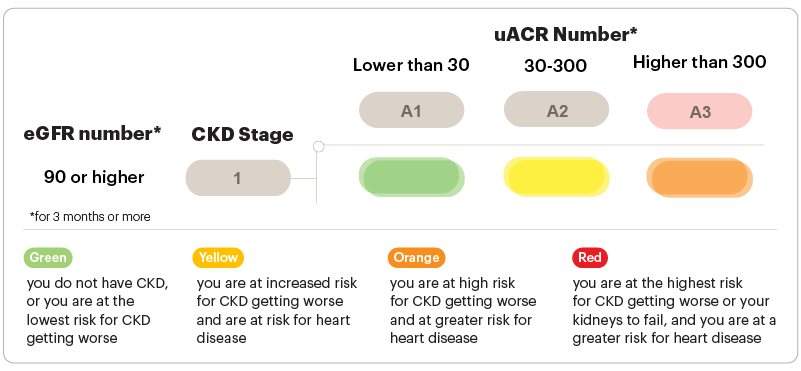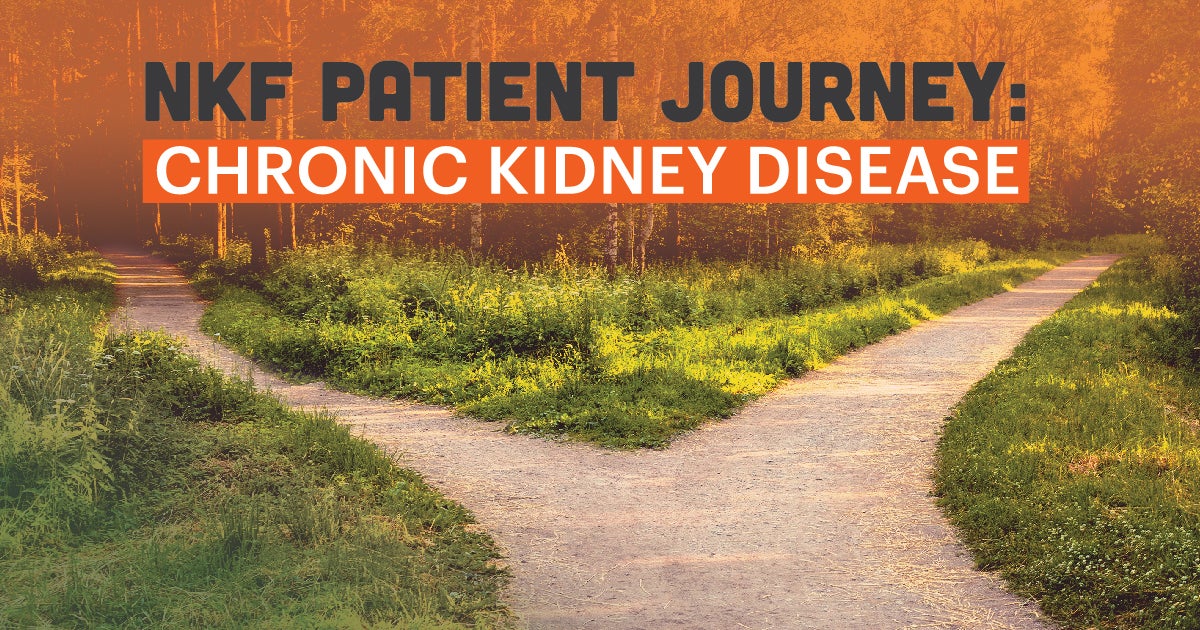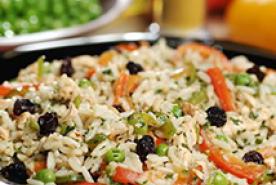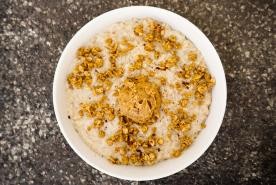Last updated: July 06, 2023
Medically reviewed by: NKF Patient Education Team
Stage 1 CKD means eGFR of 90+ with kidney damage like albuminuria, UTIs, or hematuria for 3+ months.
About Stage 1 CKD
People with stage 1 CKD have an estimated glomerular filtration rate (eGFR) of 90 or higher and ongoing kidney damage for 3 months or more.
“Kidney damage” can mean many things. This often presents as albuminuria – having a urine albumin-creatinine ratio (uACR) of 30 or more for at least three months. Other examples of kidney damage can include frequent and/or long-lasting urinary tract infections (UTIs), blood in the urine (hematuria), kidney stones, kidney cysts, or abnormal findings during medical imaging (ultrasound, MRI, or CT scan) or urinalysis.
Having evidence of ongoing kidney damage is required to be considered stage 1 CKD. In other words, just having an eGFR of 90 or higher is not enough to meet the criteria for having CKD.
Health risks with stage 1 CKD
In stage 1 CKD, your uACR level is the main factor determining your health risk. If your uACR level is lower than 30, you are at the lowest risk for CKD getting worse (or you may not even have CKD if you don’t have any other kind of kidney damage present). As your uACR number goes up, your risks of developing heart disease and CKD progression (worsening) both go up (as seen in the figure below).

Signs and symptoms
Typically, there are no symptoms associated with stage 1 CKD. If symptoms are present, they are most likely related to the type of kidney damage you have. For example, if you have albuminuria, you may notice foamy urine.
Lifestyle recommendations
Now is a great time to make healthier lifestyle choices:
- If you smoke and/or use tobacco products, stop. Smoking can speed up the kidney disease process and increase your risk of getting kidney failure. It also increases your risk for other serious health problems, including high blood pressure, heart disease, cancers, and stroke.
- Exercise regularly. Remember, it’s okay to start slowly – taking short walks is a great way to begin.
- Sleeping well is important, too. Try to get enough sleep so you are well-rested.
- If you are overweight, losing weight through a balanced diet and physical activity can help improve your health in many ways.
- Find ways to reduce and manage stress in your life.
Nutrition
With stage 1 CKD, there are not many dietary restrictions, although eating healthy is important. Healthy eating generally includes consuming more vegetables, fruits, whole grains, plant-based proteins, fish, and lean meats. Processed foods, refined carbohydrates (sugars) and sweetened drinks should be limited.
If you have high blood pressure, it is important to limit your sodium (salt) intake to less than 2300 mg per day (about 1 teaspoon of salt from all the food and drinks you consume each day). Your healthcare professional may advise an even lower target depending on your other health conditions. This means a lot more than not using a saltshaker, but also limiting foods with high levels of sodium listed on their nutrition facts label. Some foods that don’t taste salty can have a surprising amount of sodium when you check their nutrition facts label.
Ask your healthcare professional about potential dietary recommendations tailored to you.
Additional information about eating healthy with CKD can be found on the Nutrition and Early Kidney Disease page.
Medications
Your healthcare professional may prescribe one or more medications based on your medical history and the cause of your kidney damage. For example, if you have albuminuria, your healthcare professional may prescribe an ACE inhibitor/ARB and/or an SGLT2 inhibitor. These medicines help lower your uACR levels and can slow down or stop your CKD from getting worse.
Your healthcare professional may also prescribe a statin (cholesterol medicine). Guidelines recommend a statin for people with stage 1 CKD who also have diabetes, a history of heart disease, or are age 50 or older. Even if you do not have high cholesterol, a statin can help lower your risk of having a heart attack or stroke.
Always bring an updated list of any medications, vitamins, supplements, and herbal medicines you are taking to all your medical appointments and share it with your healthcare professional. Check with your healthcare professional or pharmacist before starting any supplements, herbal medicines, or other over-the-counter products
Other ways to lower your risk
In stage 1 CKD, lowering your risk for CKD progression is very important. This includes taking steps to manage other health conditions you may also have, including high blood pressure (hypertension), diabetes, and high cholesterol.
Questions to ask
- Am I at a healthy weight?
- Is my blood pressure within the recommended goal range?
- Do I have diabetes or prediabetes? If so, is my A1C within the recommended goal range?
- Do I have albuminuria?
- What are my eGFR and uACR numbers?
- When should I have my eGFR and uACR tested again?
- Are there any changes I should make to my diet?


















